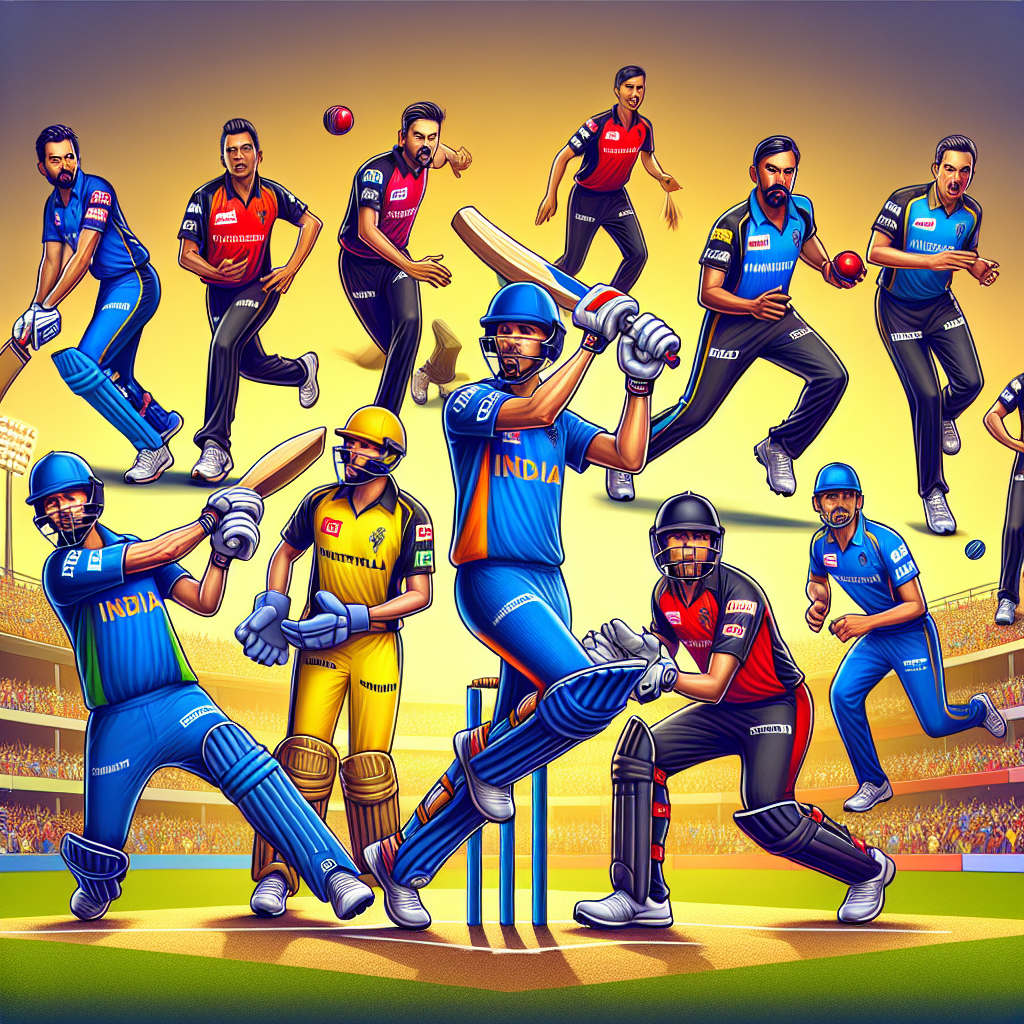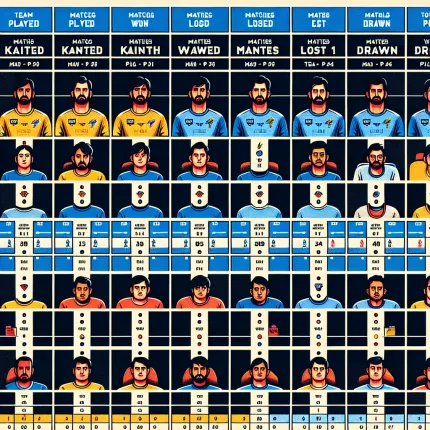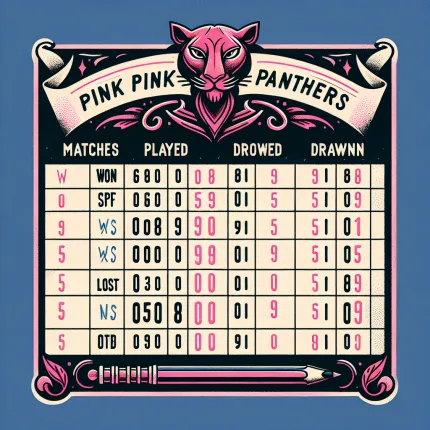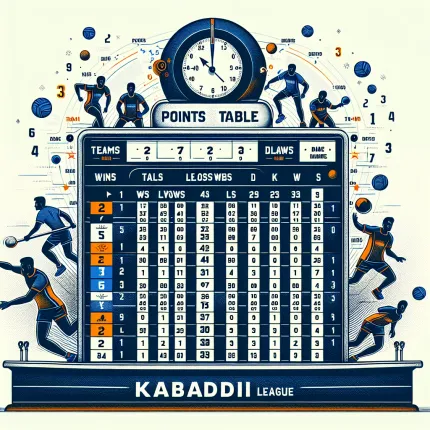
The Indian Premier League (IPL) has revolutionized the world of cricket since its inception in 2008. It has not only provided a platform for cricketers from around the globe to showcase their talent but has also brought together diverse teams that reflect a blend of cultures, strategies, and skills. This article delves into the intricacies of team dynamics in the IPL, exploring how teams are formed, managed, and what makes them successful.
The Formation of IPL Teams
Each IPL team is a franchise, owned by a mix of business tycoons, celebrities, and corporate entities. The formation of these teams is a complex process that involves strategic planning, financial investments, and a keen understanding of cricket dynamics.
Player Auctions
The player auction is a critical event in the IPL calendar. It is where teams bid for players to build their squads. The auction is a strategic game in itself, where teams must balance their budgets while acquiring the best talent available.
- Budget Constraints: Each team has a salary cap, which means they must be judicious in their spending.
- Player Retention: Teams can retain a certain number of players from their previous squad, which adds a layer of strategy to the auction.
- Overseas Players: Teams are allowed a limited number of overseas players, which requires them to make strategic choices about which international stars to include.
Team Composition
The composition of an IPL team is crucial to its success. Teams must find the right balance between experienced players and young talent, as well as between batsmen, bowlers, and all-rounders.
- Core Players: These are the players around whom the team is built. They are usually retained year after year.
- Young Talent: Investing in young players can pay off in the long run, as they bring energy and fresh skills to the team.
- Specialist Roles: Teams often look for specialists, such as death-over bowlers or power hitters, to fill specific roles.
Management and Coaching
The management and coaching staff play a pivotal role in the success of an IPL team. They are responsible for strategizing, mentoring players, and ensuring the team functions as a cohesive unit.
Coaching Staff
The coaching staff typically includes a head coach, batting coach, bowling coach, and fielding coach. Each has a specific role in developing the players' skills and preparing them for matches.
- Head Coach: The head coach is responsible for the overall strategy and performance of the team.
- Specialist Coaches: These coaches focus on specific areas, such as batting or bowling, to enhance players' skills.
- Support Staff: Includes physiotherapists, analysts, and psychologists who ensure players are in peak physical and mental condition.
Team Management
The management team handles the logistics, finances, and overall administration of the franchise. They ensure that the team has everything it needs to perform at its best.
- Team Owners: They provide the financial backing and make key decisions regarding the franchise.
- Team Managers: Responsible for day-to-day operations and ensuring the smooth functioning of the team.
- Marketing and PR: Handle the team's public image and fan engagement activities.
Strategies for Success
Success in the IPL is not just about having the best players; it's about how well a team can execute its strategies on and off the field. Here are some key strategies that successful teams often employ:
Adaptability
In a tournament as dynamic as the IPL, adaptability is crucial. Teams must be able to adjust their strategies based on the opposition, pitch conditions, and match situations.
- Flexible Line-ups: Successful teams often have flexible batting and bowling line-ups that can be adjusted as needed.
- In-game Adjustments: Captains and coaches must be able to make quick decisions during matches to counter the opposition's strategies.
Team Cohesion
A cohesive team is often more successful than a group of individual stars. Building a strong team spirit and ensuring good communication among players is essential.
- Team Bonding Activities: Many teams engage in activities outside of cricket to build camaraderie among players.
- Clear Roles: Ensuring each player understands their role within the team helps in executing strategies effectively.
Data-Driven Decisions
With the advent of technology, data analytics has become an integral part of cricket strategy. Teams use data to analyze player performances, opposition weaknesses, and match conditions.
- Performance Analysis: Detailed analysis of player performances helps in making informed decisions about team selection and strategy.
- Opposition Analysis: Understanding the strengths and weaknesses of the opposition can provide a competitive edge.
Case Studies of Successful IPL Teams
To understand what makes a successful IPL team, let's look at some case studies of teams that have consistently performed well in the tournament.
Mumbai Indians
The Mumbai Indians (MI) are one of the most successful teams in IPL history, with multiple titles to their name. Their success can be attributed to several factors:
- Strong Core: MI has maintained a strong core group of players over the years, including Rohit Sharma, Kieron Pollard, and Jasprit Bumrah.
- Strategic Auctions: They have been smart in the auction, picking players who fit their team strategy and culture.
- Excellent Management: The management team, led by owner Nita Ambani, has provided stability and support to the players and coaching staff.
Chennai Super Kings
The Chennai Super Kings (CSK) are another team with a rich history of success in the IPL. Their approach has been slightly different from MI's but equally effective.
- Experienced Leadership: Under the leadership of MS Dhoni, CSK has benefited from his calm demeanor and strategic acumen.





